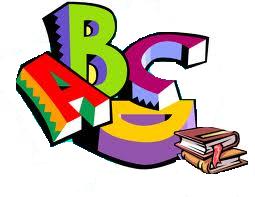English
Self-study of a foreign language: the main difficulties
It is hardly necessary to say that people who want to learn a language on their own should have an incredible desire to win and inhuman diligence. No, we do not want to scare or discourage you at all, but self-discipline is sure to be canceled!
So, what methods of self-study of English exist? We will try to systematize information not just about how to learn English on your own, but how to do it quickly and efficiently.
Consider the leading causes of failure of all self-taught briefly. There are several of them:
- Low level of motivation (by the way, this is the reason – the basis of all failed attempts, the rest merely follow from it)
- A small number of sources of information (or unwillingness to find them, see paragraph 1). If you decide to learn English on your own, you cannot do it with a grammar textbook, even if it is the most recommended and of high quality. It is necessary to listen, see, repeat, write, and for this, you need to watch videos, find interesting audio materials, communicate with foreigners, and look for interlocutors
— unreasoned training program. You must admit that you are not a professional teacher. How can you know how to learn the language better, what to pay attention to and how much time to study and how often.
How to learn English independently, overcoming all obstacles?
We offer five basic principles of learning a foreign language, following which you will increase your chances of success several times.
Dependency
Remember the main reason for all failures? So, this principle will help to overcome it. Just answer yourself the question, how much do you need English. “Everyone knows, but I don’t” or “I will be able to watch movies without translation” – reasons that will not make you pay attention to your daily activities. Think about what English studies will give you, how appropriate it is to study it. Independent language learning can only be successful if there is a high level of motivation. Will your career, education, the outcome of an important business meeting depend on it? This excellent goal will force anyone to hit the books.
Principle of consistency
Pay attention to learning the language you need daily. Systematic classes will bring results even if you study for 20-30 minutes a day. First, you are going to form a habit, and not the worst one, admit it. Secondly, frequent repetition promotes better memorization. If you learned 50 words today and you do not remember English for a week, then out of these 50 words, one or two will remain in your memory, at best. And if you learn for five words every day, daily repeating those you memorized before, then in 10 days your vocabulary will be costlier by 50 words. You can learn new words using the Google Spell Up game.
Principle of spiral
Studying English according to the self-instruction manual or the program of the video course implies a gradual refinement of language skills and the study of topics. You should not learn all the times immediately or study the dictionary hard, remembering new words, but not thinking about grammar. You need to learn English gradually: the most straightforward grammatical categories, common vocabulary words, basic pronunciation rules. I grasped the basics – you can go back in a spiral: study more difficult times, knowledge of which will be on the material that you have previously studied, forms of words, exceptions to the rules of pronunciation, etc.
Principle of emergence
Perhaps one of the most challenging lawsfor introducing into the process of independent language learning because immersion involves the creation of a specific language environment. Alternatively, search for it. However,nevertheless, without this principle, you will significantly dim your chance to master English even at the middle level yourself. The language environment can be created by watching movies or TV shows in English, listening to audio materials. Learning English through a film is not the worst idea, as the correct lively spoken modern English sounds from the screens. For language practice and the development of the ability of perception of English-speaking speech by ear – fits perfectly. However, to learn English with the help of songs should be careful: the authors and performers do not always adhere to all grammatical norms of English. Also, you can also learn English with short videos from the BBC.
You can find language environmentcan be found: conversational clubs exist with every self-respecting language school. You can talk with native speakers, even if you are not a student of this school – in this case, visiting a conversational club will cost a little more. Besides, you can find native speakers online or on city streets. The way to overcome the language barrier is only one – live communication. If there is no opportunity to immerse yourself in the language environment in an English-speaking country, look for zones of the English-speaking environment in your hometown.
Livemocha portal will help you to find a native speaker companion. A resource is something like an analog of a social network for communication in the language that you are learning. So speaking practice will be more than enough. Another option is the Lingq platform, which provides both paid and free services for online communication with native speakers.
English self-study
If you decide to learn English yourself, please be a patient and self-teaching guide. What are the advantages of tutorials in English and why to use them:
- English tutorial provides information systematized.
- Information is provided briefly – the most important only, the basics. Study the rest in the process of communication.
- Studying English with a tutorial allows you to determine the direction of searching for the necessary information. Go through the language topic for the tutorial, if you think the material is too limited –feel free to look for more details by yourself.
About the author: Melisa Marzett works as a freelance writer for Big Essay Writer – Custom Writing Service and enjoys traveling. She has such an opportunity due to freelancing. She likes green tea, physical activity, plaid shirts, short films festivals, live performances and books on psychology.










